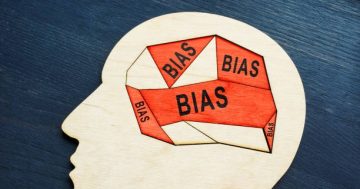Michelle Gibbings* says we tend to be on our best behaviour when we know someone is watching — the embarrassment comes when we don’t know we are being observed.
 It’s hard to be bored when there is always so much to watch and learn from people around you. People-watching is a fascinating pastime.
It’s hard to be bored when there is always so much to watch and learn from people around you. People-watching is a fascinating pastime.
Susan Krauss Whitbourne, from the University of Massachusetts Amherst, has even developed a handy guide to help you make the most of your people-watching.
Using psychology as the foundation, she suggests there are five areas to focus on: Identity, self-esteem, emotional state, agreeableness-niceness, and extraversion.
Of course, you don’t want your people-watching to become too judgemental, and you need to be conscious that your observations are all based on your perception, filtered through your brain, and so may be wrong.
As research shows, we perform differently when we think people are watching us.
The classic series of studies which gave rise to the finding of the Hawthorne Effect was undertaken in the late 1920s and early 1930s.
These studies revealed that employee performance improved when they were observed by researchers and supervisors.
It was called the Hawthorne Effect because the studies were undertaken at Western Electric’s Hawthorne Plan.
In recent times, the concept of the Hawthorne Effect has been criticised by some researchers who question the validity of the findings and the magnitude of their impact.
However, other research supports the contention that we change our behaviour when we know we are being watched.
One study of medical staff found that compliance with washing their hands increased by more than 55 per cent when they knew they were being watched.
A different group of scientists found that having posters of human eyes around a room was enough to change people’s behaviour.
Yet another study found that participants made more pro-social choices when they believed they were being watched.
When money was involved, being watched changed behaviour too.
In a classic economic game, the researchers set up an experiment where participants were asked to split an amount of money between themselves and another participant in the study.
One person in the pair decided what the split would be (and it could be any amount from zero to the full amount).
Next, they communicated that to a third party, who then relayed that offer to the other participant.
The other participant could reject that offer, and if they did that, both parties would get nothing.
There were multiple rounds to the game, and people swapped partners and roles.
In some situations, they were the ones making the offer, and in others they were in the accepting or rejecting role.
What the researchers were testing was whether people who made an offer in one round were then willing to accept an offer at the same level in a subsequent round.
The researchers found that 93 per cent of people said yes to offers that equalled what they proposed to others.
However, this figure dropped to 73 per cent when participants knew their behaviour was not being observed.
The researchers concluded that people behave more nicely when they knew they are being watched — but do they always?
Chief Executive of Charles Schwab Corporation, Walt Bettinger, has a unique practice that he uses when hiring.
In an interview with The New York Times, he explained how he sometimes conducts interviews over breakfast.
He gets to the venue early and asks the manager to mess up the order of the person joining him.
He said he does that because he wants to see how the person responds.
“That will help me understand how they deal with adversity. Are they upset, are they frustrated or are they understanding?” Bettinger said.
“Life is like that, and business is like that. It’s just another way to get a look inside their heart rather than their head.”
Now, if you were to follow much of the theory from social scientists, you would think that the person would already be on their best behaviour because they know they are being assessed.
However, people can react instinctually, particularly when they are under stress or a bit of pressure.
It’s a reminder that human behaviour is never entirely consistent, and context and circumstances matter because they impact feelings, thoughts and actions.
What’s constant is that in many aspects of our day, we are on show, and there is usually someone watching.
It reminds me of the time I was sitting in a café waiting for a client, and I overheard a person giving their team member a dressing down. It wasn’t nice.
Later that evening, I was giving a speech, and who walked up to introduce themselves after the speech?
Yes, it was that same person, who had earlier in the day publicly reprimanded their team member.
My response after the introduction: “How did the performance conversation go?”
You can only imagine her response, and yes, I was being a bit cheeky.
The question to ponder is who’s watching and what are they seeing about you?
Is it what you want them to see?
*Michelle Gibbings is a Melbourne-based change leadership and career expert and founder of Change Meridian. She can be contacted at [email protected].
This article first appeared atwww.changemeridian.com.au.











